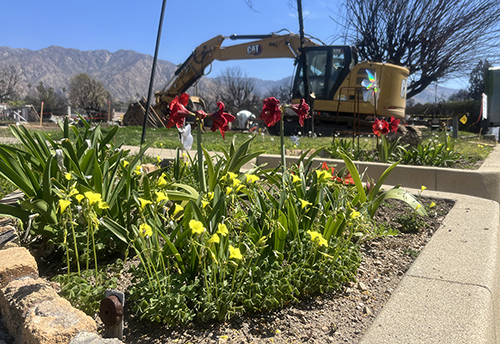Report surveys households affected by LA wildfires

September 18, 2025
In the wake of the January 2025 wildfires in the Los Angeles area, a Purdue University-led research team partnered with households to help them navigate their recovery.
The Palisades Fire and Eaton Fire destroyed more than 18,000 structures in southern California, most of them homes. Smoke spread for more than 20 miles. Debris also spread and impacted standing homes, schools, parks, and businesses. Safety, cleanup, and rebuilding immediately came into focus for tens of thousands of families and businesses.
With financial support from the R&S Kayne Foundation and individual institutions, the research team conducted a household survey. The study, called Recovery Efforts by Uniting Individuals, Listening, and Discovery (REBUILD), was informed by lessons from the 2023 chemical disaster in East Palestine, Ohio, the 2021 Marshall Fire in Colorado, and the 2018 Camp Fire in Butte County in California.
Impacted households contributed to the survey design
A unique aspect of the survey was that many questions were included based on feedback from impacted households. From February to March 2025, team members met with Los Angeles area households to help them inspect their properties as well as plan for testing and rebuilding.
The survey was deployed in English and Spanish from April to June. A little more than 1,200 adults participated.
Households were asked about their evacuation experiences, health impacts, insurance, property damage, testing, and remediation, opinions about organizations and rebuilding.
The survey was led by Andrew Whelton, a professor at Purdue’s Lyles School of Civil and Construction Engineering and the School of Sustainability Engineering and Environmental Engineering. Additional team contributors included Cristiane Ferrarezzi, a doctoral student in environmental and ecological engineering, Professor Lauryn Spearing of Tufts University and Joseph Toland a PhD student, Professor Monica Palomo of Cal Poly Pomona, and Professor Anna Hoover of the University of Kentucky. Purdue Professors Caitlin Proctor and Jianxi Su also contributed.
Public invited to attend webinar
A free public webinar is scheduled for Saturday, Sept. 20 at 9 a.m. Pacific Standard Time.
Major discoveries span many topics and recommendations are provided
- Evacuation and Displacement: A significant number of households reported that they did not receive an evacuation message on their phone, even when their homes were in a mandatory or voluntary evacuation area. Most households had not returned to living in their fire-impacted property when they completed the survey.
- Environmental Safety Concerns: Drinking water advisories had been lifted for nearly three in four households. Safety concerns for soil, outdoor air, and indoor air were much greater than drinking water concerns.
- Mental Health Impacts: More than two of every three households believed they had experienced anxiety, stress, or depression associated with damage to their indoor environment, soil, air, and natural places like parks and hiking spots. More than three of every four households expressed school safety concerns associated with debris removal. Household perceptions about the safety of their pets outdoors underscored the continued safety concerns about the environment.
- Property Testing and Remediation: A substantial number of households wanted, but had not yet obtained, home environmental testing. Indoor and outdoor fruit as well as mattresses and pillows were frequently discarded items.
- Insurance and Rebuilding: Less than one in four households expect to receive enough money from their insurance company to rebuild their home. The top ranked rebuilding action towards fire resilient homes was for power lines to be buried underground.
Additional discoveries and recommendations can be found in the final report here.
Further discoveries will be shared by the team in the coming months as the results continue to be examined. This effort was supported as part of the Community Action Project Los Angeles (CAP.LA) initiative.
Contact
Andrew J. Whelton, Ph.D., awhelton@purdue.edu
